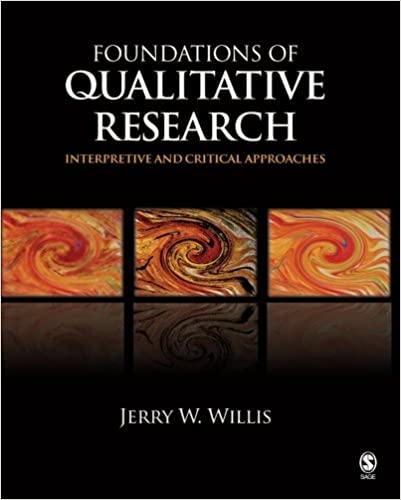Question
DB Replies. Reply individually to Channon and Faith Reply to Channon Self-identity is the understanding of oneself and who he/she believes they are, much like
DB Replies. Reply individually to Channon and Faith
Reply to Channon
Self-identity is the understanding of oneself and who he/she believes they are, much like a self-portrait (Santrock, 2023). This includes the person's sexuality, spiritual beliefs, career, and even how someone views their physical traits (Santrock, 2023). How you view your self-identity often says a lot about your personal views of yourself. A healthy self-identity requires confidence in our abilities and who we are on the inside. On the opposite side of the coin, we must also be caring and sensitive to those around us while also upholding personal boundaries. I think that knowing your strengths and weaknesses is another important aspect of a healthy self-identity. A healthy identity would prioritize one's values and protect those beliefs. Knowing your purpose in life is another aspect of a healthy self-identity. Protecting your identity is especially important for adolescence because they are in a vulnerable stage of life and will encounter many other adolescents that will have their own self-identities. It is especially important to protect your identity in Christ through these turbulent years. 2 Corinthians tells us that our identity is not what we have done, but everything that Christ has done (The Lexham English Bible, 2012, 2 Corinthians 5:17). The Bible also tells us that we are not to think of ourselves as better than others, but that we are supposed to judge ourselves with soberness (The Lexham English Bible, 2012, Romans 12:3). In today's world being a Christian can be especially hard for adolescence but trusting in God in those uncertain times will only strengthen our trust in him. The Lord doesn't promise there will be no hard times, but he does tell us that he will be with us through the darkness (The Lexham English Bible, 2012, Psalm 23:4). I think that with the right amount of guidance and protection adolescence can survive these years, and maybe even thrive.
Reply to Faith
For this assignment, we will discuss what it means to have a "healthy" self-identity. However, before diving into what it means to have a healthy self-identity, let's first discuss what a self-identity means. Our textbook contains descriptions of "self" and "identity." According to the text, a person's "self" is a sum of characteristics that make up a person, and a person's "identity" is an internalized view of a person and their meaning in life (Santrock, 2022). Therefore, self-identity is how a person views their internalized characteristics and purpose for the future.
The textbook describes that one's development of self-identity typically occurs when a child reaches adolescence and is almost done forming towards the end of their teenage years (Santrock, 2022). Meaning that by the time a person reaches adulthood, they should have a general understanding of who they are, what they want to do in life, and the kind of person they want to be throughout life. Therefore, I view a healthy self-identity as developed on time. To me, a healthy self-identity consists of a person having a general idea of their goals, aspirations, and central identity by reaching adulthood. However, this does not mean that a person must have everything figured out by the time they become fully fledged adults, just a general idea of who they are.
As mentioned earlier, the textbook exclaims that a person makes and discovers their identity by the time they are ending adolescence. However, the Bible states that God has known us and our purpose since before we are even in the womb. In Jeremiah 1:5, God tells Jeremiah that he knew him in the womb "Before I formed you in the womb I knew you, and before you were born I consecrated you; I appointed you a prophet to the nations" (ESV 2001). And in Ephesians 2:10, God tells his people that he knows the path we are meant to follow "For we are his workmanship, created in Christ Jesus for good works, which God prepared beforehand, That we should walk in them" (ESV, 2001).
Step by Step Solution
There are 3 Steps involved in it
Step: 1

Get Instant Access to Expert-Tailored Solutions
See step-by-step solutions with expert insights and AI powered tools for academic success
Step: 2

Step: 3

Ace Your Homework with AI
Get the answers you need in no time with our AI-driven, step-by-step assistance
Get Started


